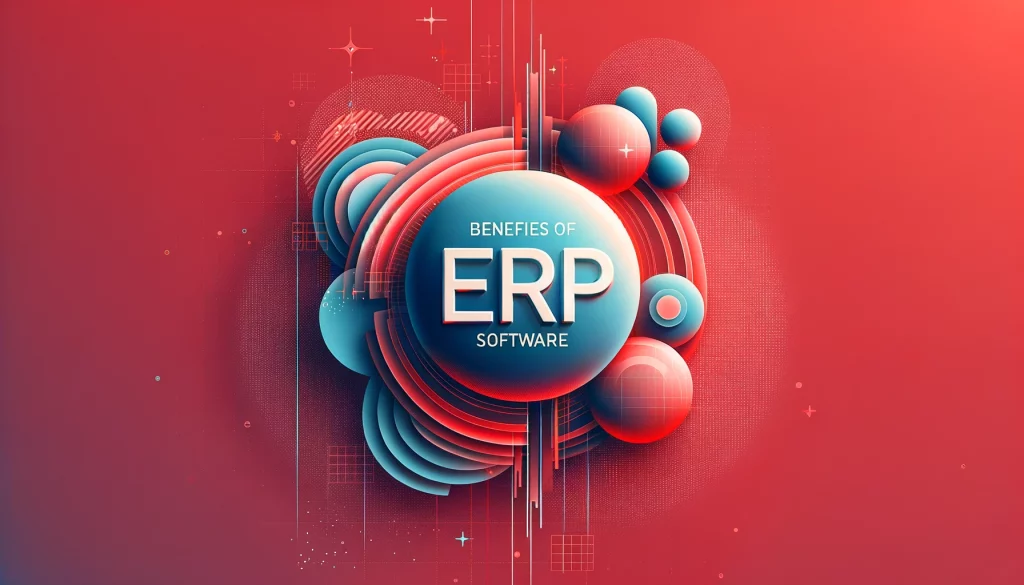Discover how ERP software can transform your business with our comprehensive guide 15 Benefits of ERP Software to Boost Your Business. From streamlining operations and improving data accuracy to enhancing customer service and boosting financial management, learn how ERP systems empower businesses to optimize performance and increase efficiency. Perfect for SMEs and large enterprises looking to leverage technology for sustainable growth. Dive into the advantages of integrating ERP software into your business strategy today!
What is ERP?
Enterprise Resource Planning (ERP) software is like the brain of a business operation. It’s a comprehensive system that integrates key business functions like finance, human resources, inventory management, and customer relationship management into one unified platform. Imagine if your business had separate departments, each using their own software to manage tasks. ERP brings them all together, allowing seamless communication and data sharing across the organization.
Imagine that you have an online business, and let’s say a customer places an order online. With ERP, that order automatically triggers processes across different departments. It updates inventory levels, generates invoices, schedules production, and alerts the sales team. This level of automation not only saves time but also reduces errors and improves efficiency. Plus, having all data in one place enables better decision-making by providing real-time insights into the business’s performance and KPIs.
Implementing an ERP system can be a game-changer for businesses of all sizes. It streamlines operations, enhances collaboration, and helps adapt to changing market conditions. However, choosing the right ERP software and ensuring a smooth transition requires careful planning and investment. But in the long run, the benefits far outweigh the initial challenges, paving the way for growth and success.
Table of Contents
15 Benefits of ERP Software to Boost Your Business
- Data Security: Enhances the security of your data by centralizing and restricting access based on user roles (NetSuite).
- Standardized Business Processes: Standardizes data across the organization, reducing duplication and improving data accuracy (NetSuite).
- Regulatory Compliance: Simplifies compliance management by providing tools that help ensure business processes meet legal standards (NetSuite).
- Improved Efficiency: Streamlines business operations, reducing the need for manual interventions and allowing staff to focus on more strategic tasks (Software Connect).
- Scalability: Adapts to the growth of the business without the need for major software overhauls or replacements (Software Connect).
- Cost Management: Helps in managing operating costs through improved efficiency and centralized financial management (Oracle).
- Integrated Information: No redundant data as all data is compiled, stored, shared, and accessed through a single system (NetSuite).
- Better Planning and Reporting: Provides tools for better management reporting and decision-making (SelectHub).
- Mobility: Access to the ERP system via mobile devices, allowing for real-time data access from anywhere (Aptean).
- Customer Service: Improves customer service by providing a single source for billing and relationship tracking.
- Supply Chain Management: Enhances the supply chain management, including procurement, inventory, and claims processing (Software Connect).
- Project Management: Offers tools to manage projects from a financial perspective.
- Reduced Complexity: Simplifies IT by consolidating business systems and using a common database (SelectHub).
- Enhanced Collaboration: Promotes collaboration with data sharing and communication tools integrated into the ERP system (Software Connect).
- Flexible Modularity: Allows businesses to tailor the ERP system to their needs with applications that are powerful alone but better together (SelectHub).

10 Tips For Choosing The Right ERP Software
Here are 10 tips or checklist items to consider when choosing the right ERP software:
- Define Your Needs: Clearly outline your business requirements and objectives. Identify key functionalities you need in an ERP system, such as accounting, inventory management, or CRM.
- Scalability: Ensure the ERP software can scale with your business as it grows. You don’t want to outgrow the system too quickly or invest in something overly complex for your current needs.
- Ease of Use: Choose a user-friendly ERP system that your employees can easily learn and adapt to. Complex interfaces can hinder productivity and adoption.
- Customization Options: Look for ERP solutions that offer customization options to tailor the software to your specific business processes and workflows.
- Integration Capabilities: Check if the ERP software seamlessly integrates with other tools and systems you currently use, such as e-commerce platforms, CRM software, or third-party apps.
- Mobile Accessibility: In today’s digital age, mobile accessibility is crucial. Ensure the ERP system has mobile capabilities, allowing users to access data and perform tasks from anywhere.
- Vendor Reputation and Support: Research the reputation of ERP vendors and their track record of customer support. Choose a vendor with a reliable support system to assist with implementation, training, and ongoing maintenance.
- Data Security: Protecting your sensitive business data is paramount. Evaluate the ERP software’s security measures, including data encryption, user access controls, and compliance with industry regulations.
- Cost Considerations: Assess the total cost of ownership, including upfront licensing fees, implementation costs, training expenses, and ongoing maintenance fees. Compare pricing models and choose a solution that fits your budget.
- Cloud vs. On-Premises: Decide whether a cloud-based or on-premises ERP solution is better suited for your business. Cloud ERP offers flexibility and scalability, while on-premises solutions provide greater control over data and customization.
- User Training and Support: Ensure that the ERP vendor provides comprehensive training resources and ongoing support to help your team effectively use the software.
- Future Upgrades and Updates: Consider the ERP software’s roadmap for future upgrades and updates. You want a solution that stays current with technology advancements and evolving business needs.
- Demo and Trial Period: Request a demo or trial period to test the ERP software’s features and functionality firsthand. This allows you to assess whether it meets your requirements before making a commitment.
- User Feedback and Reviews: Seek feedback from other users or read reviews to gain insights into their experiences with the ERP software. This can help you identify potential strengths and weaknesses.
- Alignment with Industry Standards: Ensure that the ERP software aligns with industry standards and best practices relevant to your business sector. Compliance with regulations such as GDPR or industry-specific requirements is essential.
Famous ERP Applications for Small Business
As part of our article 15 Benefits of ERP Software to Boost Your Business, some well-known ERP applications suitable for small businesses include:
- NetSuite ERP: Offers a comprehensive suite of enterprise-grade applications for financials, CRM, ecommerce, and more, ideal for growing small to mid-sized businesses.
- SAP Business One: Tailored for small businesses, this application offers financial management, sales, customer relationship, inventory, and operations management.
- Microsoft Dynamics 365: Integrates CRM and ERP capabilities, delivering a suite of intelligent business applications.
- Odoo: Known for its modularity, with applications ranging from manufacturing, inventory, and accounting to project management and ecommerce.
- Acumatica: Offers a full suite of integrated business management applications, including financials, distribution, project accounting, and CRM.
These ERP systems help small businesses streamline their operations and improve efficiency, driving growth and scalability.
For further details, you can explore more about ERP benefits and applications on sites like NetSuite, Oracle, and SAP.

2 comments
[…] Training and Development: Evaluate training programs to determine their effectiveness in enhancing employee skills and supporting career development. This includes checking the relevance of training content and its alignment with the organization’s needs. 15 Benefits of ERP Software to Boost Your Business – A Comprehensive Guide – Exceediance […]
[…] Understand automation in business with our article “15 Benefits of ERP Software to Boost Your Business“ […]
Comments are closed.